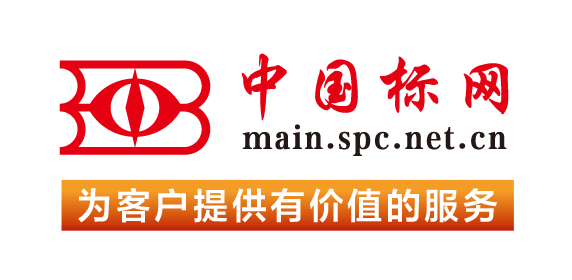【国外标准】 Standard Test Method for Determination of Ignition Delay and Derived Cetane Number (DCN) of Diesel Fuel Oils by Combustion in a Constant Volume Chamber
本网站 发布时间:
2024-02-28
开通会员免费在线看70000余条国内标准,赠送文本下载次数,单本最低仅合13.3元!还可享标准出版进度查询、定制跟踪推送、标准查新等超多特权!
查看详情>>
适用范围:
5.1 The ID and DCN values determined by this test method can provide a measure of the ignition characteristics of diesel fuel oil in compression ignition engines.5.2 This test can be used in commerce as a specification aid to relate or match fuels and engines. It can also be useful in research or when there is interest in the ignition delay of a diesel fuel under the conditions of this test method.5.3 The relationship of diesel fuel oil DCN determinations to the performance of full-scale, variable-speed, variable-load diesel engines is not completely understood.5.4 This test may be applied to non-conventional fuels. It is recognized that the performance of non-conventional fuels in full-scale engines is not completely understood. The user is therefore cautioned to investigate the suitability of ignition characteristic measurements for predicting performance in full-scale engines for these types of fuels.5.5 This test determines ignition characteristics and requires a sample of approximately 100 mL and a test time of approximately 20 min on a fit-for-use instrument.1.1 This automated laboratory test method covers the quantitative determination of the ignition characteristics of conventional diesel fuel oil, oil-sands based fuels, hydrocarbon oils, blends of fuel containing biodiesel material, diesel fuel oils containing cetane number improver additives, and is applicable to products typical of ASTM Specification D975 grades No. 1-D S15, No. 1-D S500, and No. 1-D S5000, and grades No. 2-D S15, No. 2-D S500, and No. 2-D S5000 diesel fuel oils, European standard EN 590, and Canadian standards CAN/CGSB-3.517 and 3.520. The test method may also be applied to the quantitative determination of the ignition characteristics of diesel fuel blending components.1.2 This test method measures the ignition delay of a diesel fuel injected directly into a constant volume combustion chamber containing heated, compressed air. An equation correlates an ignition delay determination to cetane number by Test Method D613, resulting in a derived cetane number (DCN).1.3 This test method covers the ignition delay range from 2.64 ms to 6.90 ms (75.1 DCN to 31.5 DCN). The combustion analyzer can measure shorter and longer ignition delays, but precision may be affected. For these shorter or longer ignition delays the correlation equation for DCN is given in Appendix X2.1.4 For purposes of determining conformance with the parameters of this test method, an observed value or a calculated value shall be rounded “to the nearest unit” in the last right-hand digit used in expressing the parameter, in accordance with the rounding method of Practice E29.1.5 The values stated in SI units are to be regarded as standard. No other units of measurement are included in this standard.1.6 This standard does not purport to address all of the safety concerns, if any, associated with its use. It is the responsibility of the user of this standard to establish appropriate safety, health, and environmental practices and determine the applicability of regulatory limitations prior to use.1.7 This international standard was developed in accordance with internationally recognized principles on standardization established in the Decision on Principles for the Development of International Standards, Guides and Recommendations issued by the World Trade Organization Technical Barriers to Trade (TBT) Committee.
标准号:
ASTM D6890-22
标准名称:
Standard Test Method for Determination of Ignition Delay and Derived Cetane Number (DCN) of Diesel Fuel Oils by Combustion in a Constant Volume Chamber
英文名称:
Standard Test Method for Determination of Ignition Delay and Derived Cetane Number (DCN) of Diesel Fuel Oils by Combustion in a Constant Volume Chamber标准状态:
Active-
发布日期:
-
实施日期:
出版语种:
- 推荐标准
- ASTM F3448-20 Standard Guide for Clinical Outcomes for Clinical Trials and/or Clinical Registries for Hip Reconstructive Surgery
- ASTM F3449-20 Standard Guide for Inclusion of Cyber Risks into Maritime Safety Management Systems in Accordance with IMO Resolution MSC.428(98)―Cyber Risks and Challenges
- ASTM F3450-20 Standard Guide for Flight Hazard and Surveillance Systems Personnel Certification
- ASTM F3455/F3455M-22 Standard Practice for Establishing the Minimum- and Maximum-Width Configurations for Crash Testing of Exceptionally Long Variable-Width Vehicle Barriers
- ASTM F3457-20 Standard Guide for Aircraft Certification Education Standards for Engineers and Professionals in Aerospace Industry
- ASTM F3459-21 Standard Specification for Rigid Poly Vinyl Chloride (PVC) Exterior Profiles Used for Sound Walls
- ASTM F3460-21 Standard Test Method for Seam Measurement Procedure for Baseballs and Softballs
- ASTM F3463-21 Standard Guide for Ensuring the Safety of Connected Consumer Products
- ASTM F3478-20 Standard Practice for Development of a Durability and Reliability Flight Demonstration Program for Low-Risk Unmanned Aircraft Systems (UAS) under FAA Oversight
- ASTM F3487-20 Standard Guide for Assessing the Service Life of a Brush Part Intended to Clean a Medical Device
- ASTM F3489-23 Standard Guide for Additive Manufacturing of Polymers — Material Extrusion — Recommendation for Material Handling and Evaluation of Static Mechanical Properties
- ASTM F3491-21 Standard Practice for Enhanced Indication Methods in Aircraft
- ASTM F3492-21 Standard Consumer Safety Specification for Child Safety Locks and Latches for Use with Cabinet Doors and Drawers
- ASTM F3495-23 Standard Test Methods for Determining the Static Failure Load of Ceramic Knee Femoral Components
- ASTM F3502-23a Standard Specification for Barrier Face Coverings
 购物车
购物车 400-168-0010
400-168-0010













